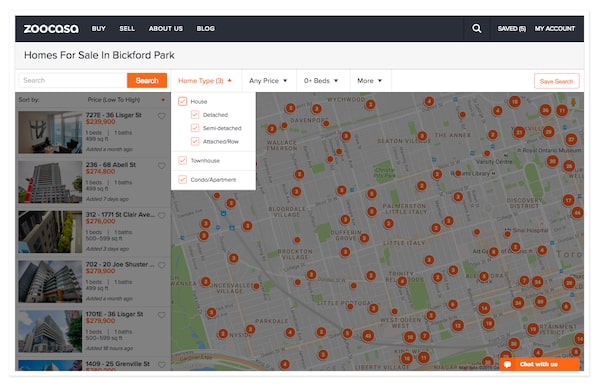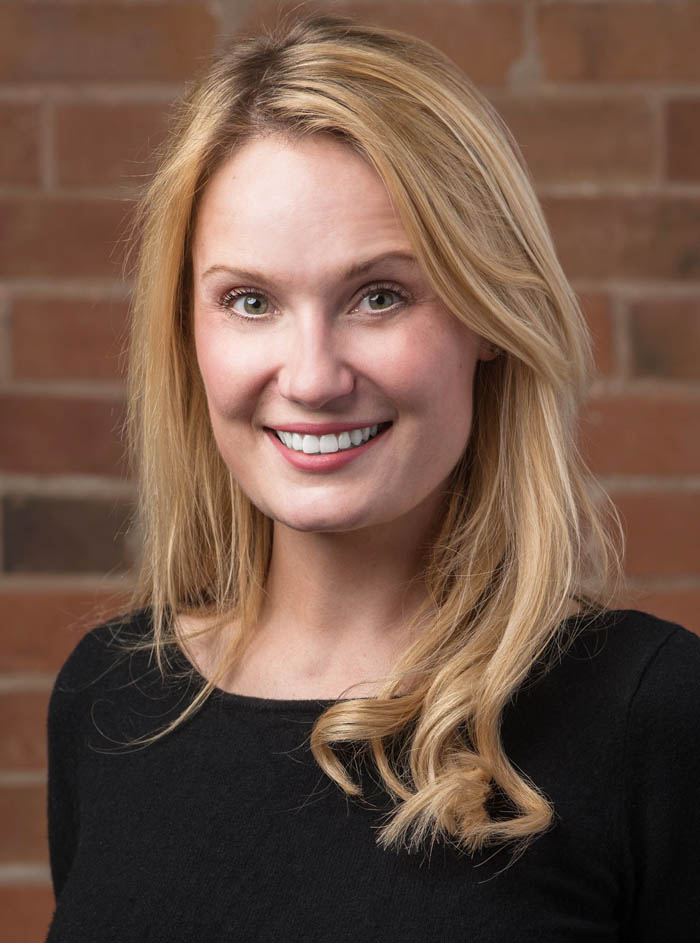
From an initial online search of real estate listings to 'getting your keys on moving day, we want to make sure we control the quality of that experience from start to finish,' says Zoocasa's CEO Lauren Haw.Supplied
The series: We look at decision makers among Canada’s mid-sized companies who took successful action in a competitive global digital economy.
Initial impressions are huge in real estate: the street a house is on, the feel of the front entrance, the lure of a real-estate listings website.
When real-estate agent and entrepreneur Lauren Haw led the purchase of Zoocasa in 2015 from Rogers Communications, she took the company’s listings site and made it effectively the technological front door of the new full-service brokerage that she is building.
Zoocasa had been primarily in the business of generating leads. Buyers and sellers would sign up to use the various online search functions that filter the multiple listing system (MLS), and those leads of potential customers would be sold to real-estate agents.
Ms. Haw changed the model. Instead of being a real-estate website business, Zoocasa is now a brokerage, encouraging online users to then use the company’s own agents and brokerage services. Users might come to the website to filter their online searches, to look for homes according to, say, the provincial ranking of school districts. But the idea is then to marry those customers with Zoocasa agents familiar with those kinds of homes.
She believes that the more traditional skills of real estate agents, working on a commission basis, are still essential to the buying and selling process, but that they need to be backed by a robust online presence.
From an initial online search to “getting your keys on moving day, we want to make sure we control the quality of that experience from start to finish,” said Ms. Haw, Zoocasa’s chief executive officer, who is based in Toronto. As it grows, the brokerage is still focusing its services mainly on Toronto and Southern Ontario, although the website has listings from across the country.
Yet, real estate as a business is rarely that straightforward. Zoocasa is not only competing with other brokerages for leads and customers, it’s also competing with other brokerages to hire agents.
To illustrate this business model, Ms. Haw noted the way in which people now approach listings and home buying. There’s a high degree of autonomy that people want to preserve. Serious and semi-serious buyers all want to be able to snoop a little. They want discretion. They don’t want agents descending on them immediately, even as they search more and more for the kind of detailed information agents provide.
“They are going online to do research, and they want to be anonymous during that time,” Ms. Haw said. “They want to empower themselves with data and analytics in order to make better decisions. And then, once they are educated and able to make decisions, they are looking for advisors to help them through that process, who have more experience on the ground."
She added, “What we’ve done is connect the two. Instead of being just an online site that is a provider of information, or just the advisor, we’re looking to smooth that transition from the research phase to the actual selling and negotiations, so that the quality of the experience is seamless."
However, full service is nothing new. In fact, most brokerages will say they offer full service and, if anything, it requires yet more research on the part of home buyers to truly learn what different firms offer.
“Unfortunately I believe every brokerage in Toronto right now calls itself full service. So, it’s almost a phrase that’s been tarnished by overuse. So, we have to really elaborate on what full service means. That’s where we look to be that end-to-end solution,” Ms. Haw said, noting the less glamorous administrative and back-end services that are also so critical to the process.
The decision by the company to expand into a full-service brokerage is also partly due to the fact that the listing services and filters of competitors may inevitably match Zoocasa’s. Other companies might be only a few lines of computer code away from offering much the same search tools.
Zoocasa (whose name riffs off the Spanish mi casa es su casa) made the move to have agents experienced in the kind of criteria people search for online, such as looking for homes in good school districts or homes with basement apartments. “We have agents specifically trained for each of those client types,” she said.
Zoocasa is also among those that argued in favour of posting the sale price of homes. This is a point of controversy. Before, one would have to ask the real-estate agent involved in the deal or get the information from city hall. “What we believe is not to make it difficult. Let’s just give the information to people who are looking for it, to help them make better decisions,” Ms. Haw said. The Toronto Real Estate Board had argued that listings sites that post sold prices invade the privacy of home buyers and sellers. In August last year, the Supreme Court of Canada refused to hear an appeal to prevent this, thereby allowing sold data to be posted.
Just as the website attracts potential leads with this kind of data, the idea is then to attract agents drawn by that stream of leads. The agents, said Ms. Haw, don’t need to advertise themselves or line people’s mailboxes with flyers showing their smiling faces, as many agents typically need to. Zoocasa handles the advertising, allowing the agents to focus on the customers, Ms. Haw said. Her sales pitch, in so many words, is that Zoocasa is offering agents full service, too.
Real-estate agents usually "spend most of their time trying to find clients and find leads. Our agents only work in client services, working to buy and sell homes,” she said. In other words, competition for good agents is fierce.
The difference between brokerages is in the way they compensate and offer administrative support to agents. Ms. Haw describes Zoocasa’s agents as independent, although that requires a nuanced definition. According to the company, Zoocasa agents have the flexibility to set their commission rates with their clients.
“They effectively run micro-businesses within our umbrella. They are independent contractors. They work from home. They have access to the office. But as a real-estate agent, you work in your car," she said.
“It would be similar to the mortgage world," an industry in which Ms. Haw once worked. Mortgage brokers "can only work exclusively with one banner. You can only be at one brokerage shop from a legal standpoint,” she said.
Regulators define it this way: “Under Ontario law, all brokers and salespeople are considered employees of their brokerage; they must have an employing brokerage in order to trade in real estate. Brokerages have various compensation arrangements for their employees, given the multiplicity of business models and employment arrangements,” said Joseph Richer in an e-mail response. He is the registrar of the Real Estate Council of Ontario, the provincial regulatory body.
The key then is the business model, and agents have a lot of choice to pick companies with a model that suits them. For Zoocasa, this has also entailed quick expansion despite the relative downturn in Toronto’s real-estate market.

Ms. Haw says potential customers use the website 'to empower themselves with data and analytics in order to make better decisions. And then, once they are educated and able to make decisions, they are looking for advisors to help them through that process, who have more experience on the ground.'Supplied
“We are already national online, and we have great partner agents,” at other brokerages across the country. The idea is to have this lead to opening offices in other cities, but there isn’t a immediate timeline. “We are still focused on Southern Ontario," she said. The company is currently hiring about 10 agents a month.
About 50 per cent of Zoocasa’s business comes from the site, and the other 50 per cent comes from repeat customers and referrals, the latter being the more traditional way brokerages would drum up business. Online lead generation is a newer way, but Zoocasa doesn’t want to solely be in the lead-generation business.
“And everybody in the industry defines leads differently. There are different qualities. There’s a whole industry – many, many companies based in Canada and throughout North America and the world – that focuses solely on lead generation,” she said. And despite Zoocasa expanding its full-service brokerage, the lure of the website remains part of the business model. “Part of the job in real estate, regardless of where you’re working is generating future clients.”
